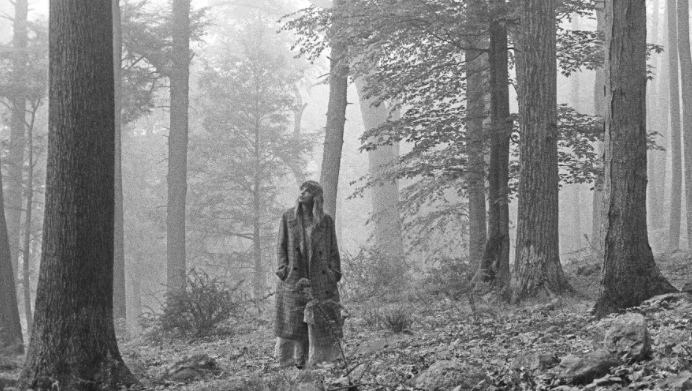I’ve always been a Taylor Swift fan. In second grade, “Love Story” was the first song I bought on my blue ipod Nano. In third grade, my dad took me to my first ever concert: the Fearless tour at the Allstate Arena. In sixth grade, my best friend’s dad picked us up from school the day Red came out and took us straight to Target to buy our copies. For me and so many others in my generation, Taylor Swift’s music was a pivotal part of our childhoods; as we grew up, we watched her cross the bridge from country to mainstream pop, a feat few others before her were able to accomplish, and become one of the most influential artists of the decade.
Now, 2020 Swift has surpassed even this. In a surprise drop less than one year after the release of her seventh album, Lover, Swift blessed the music world with her eighth record: folkore. Her most mature work to date, and the first in her catalogue to be classified as alternative, folklore represents a Swift album that can appeal to even those who have vehemently avoided her work in the past, citing it as “girly” or “shallow.” Though I don’t agree with those critiques, I find it hard to believe Swift’s critics could continue to apply them to her latest work. folklore presents a beautifully crafted, interwoven series of stories, characters, and emotions set to mystical acoustics, proving that Swift’s music is anything but superficial.
According to Swift, the record was penned in its entirety during this summer’s quarantine period. Matching this isolation, folklore is much more subdued than Swift’s last three high energy albums. Slow, sad songs like “Exile” and “Illicit Affairs” create perhaps the most heart-wrenching listen since Red’s “All Too Well.” Though an alternative record, Swift definitely references her country roots on this album, like during folksy ballad “Betty,” which features heavy acoustic guitar and harmonica. folklore is both a callback to the best work of Swift’s past and something new altogether.
Other than its shift in genre, the main feature that sets folklore apart from Swift’s previous work is its strong roots in fiction and storytelling, as opposed to solely detailing Swift’s own life experiences. “I found myself not only writing my own stories, but also writing about or from the perspective of people I’ve never met, people I’ve known, or those I wish I hadn’t,” Swift wrote of the album. Though she has dabbled in work like this before, like writing from a friend’s perspective in “Speak Now”, or a neighbor’s perspective in “Mary’s Song”, Swift’s talent for telling stories that aren’t strictly autobiographical has taken on a whole new life in 2020. For example, three songs on folklore, “Cardigan”, “August”, and “Betty”, depict the three different perspectives of a fictional love triangle, creating a complex level of storytelling that surpasses anything similar that Swift has done before.
Only expanding this idea more, the album is broken into different interconnected “chapters,” which Swift has detailed on her instagram and website, so far titled: “the escapism chapter”; the sleepless nights chapter” ; “the saltbox house chapter” ; and “the yeah I showed up at your party chapter.” Each chapter has six songs, and these groupings suggest many different lenses through which to view them, hinting at all sorts of double meanings and hidden messages. The storytelling here is truly masterful, and allows the record to stay fresh for countless listens.
The thing about Swift that really sets her apart from others in her field is her incredible talent for writing and lyrics, and folklore allows this skill to shine more than any of her previous albums. Musically speaking, folklore is a beautiful, relaxed, indie-sounding record, but nothing groundbreaking. Sound-wise, it walks the line between mellow pop and chill indie rock, just barely crossing over into the alternative category. If the lyrics and vocals were weak, this album might not be anything special. But they aren’t. They are Swift, at her raw, relatable, emotional best: beautiful, honest, and breathtaking.
Hearing folklore for the first time was the most positive reaction I’ve had to a new Taylor Swift record since Red in 2014, and I think that it might really be her best work to date. Even if you’ve never liked her in the past, this album could be the one to convince you that Swift does have something special to offer, in her songwriting and storytelling. You can stream folklore on all platforms, and immerse yourself in the type of fairytale its name suggests.


